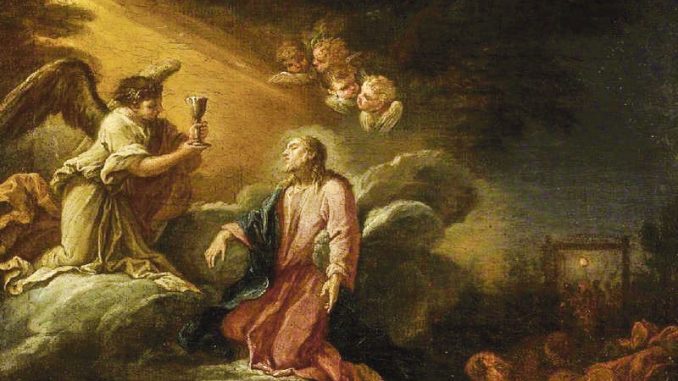
There’s something very American about wanting to do things our way. We want choices, and we want to give input on almost anything that affects us. Unfortunately, that means that we are accustomed to conducting our lives in ways that don’t quite square with the Gospel. It’s the Gospel, after all, that tells us over and over that God’s will may not offer us an array of options.
The Trappist monk called Father Louis by his confreres was known to the general public as Thomas Merton. His death a little more than 50 years ago has not kept him from being a much-cited spiritual writer. One of the topics not only of his writing but of his life was learning to submit to God’s will. Many of the people who are received into the Church at the Easter Vigil can relate to his struggle toward conversion to Catholicism. A few more can understand what he grappled with as he sought to learn whether he had a vocation to contemplative life in a very austere monastery. Others can see how giving up a yen for one thing (a literary life) may later be restored.
Merton had a sense of irony. After thinking that he had renounced a scholarly poetic life, he wrote an autobiography that ended up being a best-seller, “The Seven-Storey Mountain”. The account of a flamboyant young intellectual joining a monastery that raised its money by making cheese somehow had incredible appeal. But his sense of irony went beyond the surprise of his literary success.
It seems that the vow of obedience was not a snap for him. There are tales of how frequently he locked horns with his abbot. One affliction to his freelance spirit was an assignment to write about Cistercians (monks and nuns) of the past. Another test of his vocation was having to go through his order’s censors. Of course, he did manage to get a few things by them — such as revealing that the model hermit St. Lutgarde fasted on bread and beer.
Merton spent a lifetime trying to figure out how to be sure about God’s will. He ended up with two great insights. One was that just because one wants to do something doesn’t mean that it isn’t God’s will. Sometimes God does indeed want what we want, but it may not be on our time table. The other is that, this side of heaven, we will never be 100% sure. What has become known as “Merton’s Prayer” includes these words: “My Lord God, I have no idea where I am going … and the fact that I think I am following your will does not mean that I am actually doing so.”
These weeks we run from the Annunciation to Holy Thursday. Both the appearance of Gabriel to Mary and the Agony in the Garden show that, even for a woman conceived without sin and a Son who was and is true God and true man, the Father’s will may startle and confuse us. We shouldn’t really be too surprised if that happens to us too.


